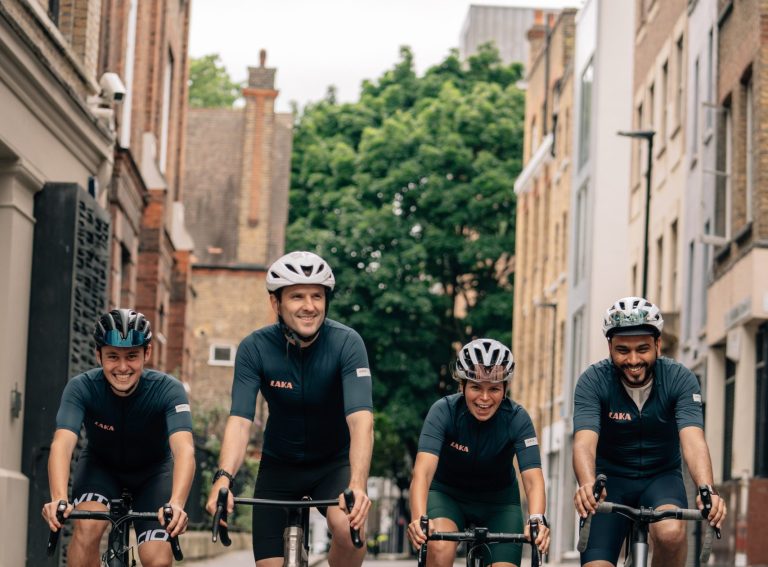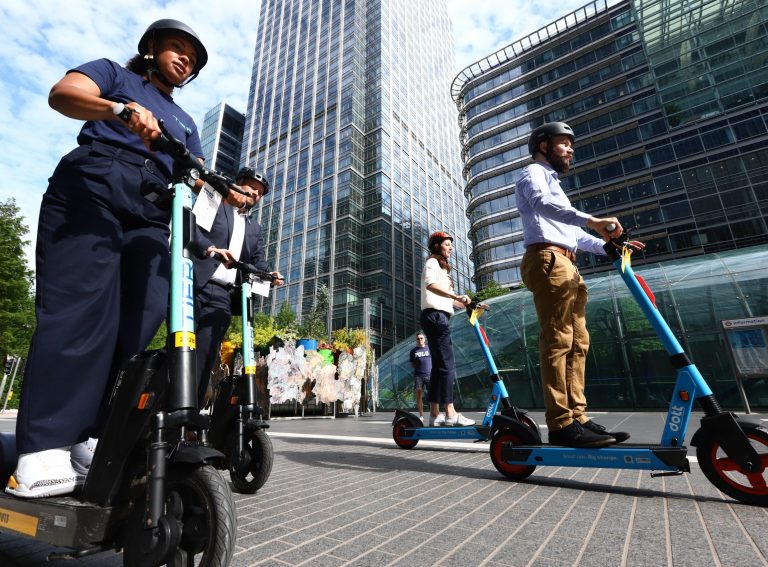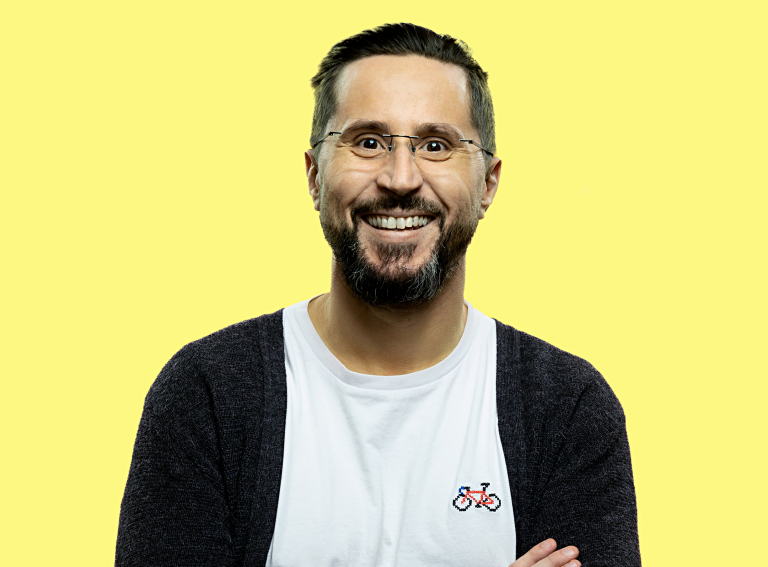When the world’s largest logistics company Amazon announced last week that it was launching its first micromobility hub in London to replace thousands of van deliveries with e-cargo bikes, naturally we all took note.
But Amazon is what some may call a newbie in this field. Zedify’s CEO and Co-Founder Rob King on the other hand has made reducing emissions in cities his life’s work.
The origins of zero-emission delivery company Zedify go back around seventeen years when King was looking to set up a cycling courier business with his brother. It was there where King launched the UK’s first commercial cargo bike delivery service in Cambridge. Few people, he recalls, had ever heard of cargo bikes at this time.
He then founded two more cycling businesses before co-founding Zedify with Sam Keam in 2018. Operating from 10 UK hubs, their mission is simple. Transform urban logistics to create healthier, cleaner and more liveable cities of the future.
Zag Daily: With two, three and four-wheeled e-cargo bikes now part of Zedify’s offering, what excites you most about these vehicles?
RK: “It’s how efficient they are. Our big cargo trikes can carry half the volume of a small van, and do four routes in a day. So they can carry more load over the course of the day. The smaller batteries and low weight actually make them over 90% more carbon efficient than an electric van.”
Zag Daily: If the trikes can outperform small vans, how big an impact could they have on the delivery sector?
RK: “The research shows that 60% of all deliveries could be done by cargo bike. Right now there’s an awful lot of smaller items up to a shoebox size that are being transported in vans which are often half empty.
“If 60% of deliveries were all moved to cargo bikes just imagine how that would make cities look and feel? I think it would absolutely transform them. Turning up to someone’s house in a quiet way, not polluting the local environment, offering those end users a really great experience, while at the same time getting all these vans off the road.”
Zag Daily: Taking a step back to 2018, how was Zedify founded?
RK: “My Co-Founder Sam and I began by doing local deliveries for local shops. This is what’s called point to point deliveries, so pick up from a local shop and deliver it to a local person. We consolidated items together in a similar way that the likes of Deliveroo would do, but what we wanted to change was to get a piece of all those deliveries that were coming in and out of the city. That’s when we came up with an idea to utilise micro hubs on the edge of an urban environment which could act as a gateway for these deliveries.
“We partnered with some of the big 3PL companies like FedEx, and also worked directly with retailers and now goods arrive at our localised hubs and we re-mode them on to our big cargo trikes, consolidate this with other deliveries going to the same area, and the trikes then do multiple rounds in a day. Generally, we don’t deliver anything bigger than a vegetable box size as there’s limited space. E-cargo bikes work best by doing lots of deliveries in quite dense areas. Big heavy 10-mile deliveries of say a washing machine is going to be much better in a van.”
Zag Daily: Can you explain how the delivery route and process for a van may differ from one of your cargo bikes?
RK: “At the moment a van zooms down the motorway and into your delivery hub that’s 70 miles outside the city. That same van then does the last mile deliveries in the city itself. But what we’re rapidly realising is that city environments are very different. These big vans are getting caught up in traffic, finding it hard to find parking spaces, and nobody really wants them there because they take up lots of space and are heavy polluters.
“With our micro hubs, just one big vehicle can drop off a tonne of goods on the outskirts of a city and our e-cargo bikes can do the last mile bit of the journey. We can get closer to the consumer, offer them more flexibility and create cleaner, more liveable cities. So my aim is to help people reimagine what a city could look like from a delivery perspective.”
Zag Daily: If a consumer wants a fast delivery time though, how can Zedify compete with the likes of Amazon?
RK: “So people are expecting faster delivery times. A few years ago, if you got something the next day, you’d be quite impressed. Now, you’d be really unimpressed if you didn’t get it the next day. And in the last few years it’s all been about this ‘on demand I’ll have it in 10 minutes’ trend. But I think there’s a niche within those two areas of ‘sometime tomorrow’ and ‘I need it in 10 minutes’, which is that consumers can actually choose when they get their delivery. And that’s really, really important.
“As a growing trend it’s not good enough to get a message in the morning saying my delivery will arrive between one and two because if you’re not there then and actually want your delivery at seven in the evening, that’s a bit of a problem. So being able to choose a time is what stands us apart and we have the infrastructure in place to deliver on this. By having those micro hubs really close to our consumers, you can go back and forth two, three or four times a day. We can be much more responsive and hit those time windows in a super-efficient way.”
Zag Daily: Besides the benefit of choosing a delivery time, are you finding consumers care more about how an item is delivered?
RK: “Yeah, the last couple of years living with COVID has definitely taught people about localism and buying locally. But really the delivery experience is your point of recognition. Delivering goods in a grumpy mood because you’ve been sat in a traffic jam degrades the whole experience. Whereas with us you get someone that turns up who’s done an active journey, they tend to be happier because they’re outside and not caught in traffic, and the cargo bike is a good image of sustainability in a way that even an e-van can’t cut.”
Zag Daily: Amazon looks to have cottoned on to the cargo-bike trend with its first micromobility hub in Hackney. Do you see this as competition or validation?
RK: “Validation, I think it’s absolutely brilliant as it serves as a rubber stamp from Amazon that says ‘we really believe in what cargo bikes can do’.
“Now lots of other companies will wake up and go ‘oh this is actually happening, it’s not a niche market’. The data is proving that cargo bikes have got a very significant role to play in all of this. It’s not going to take over everything that a van does. But if we can reduce the number of vans, and there’s a lot of them out there at the moment, then that can only be a good thing.”





